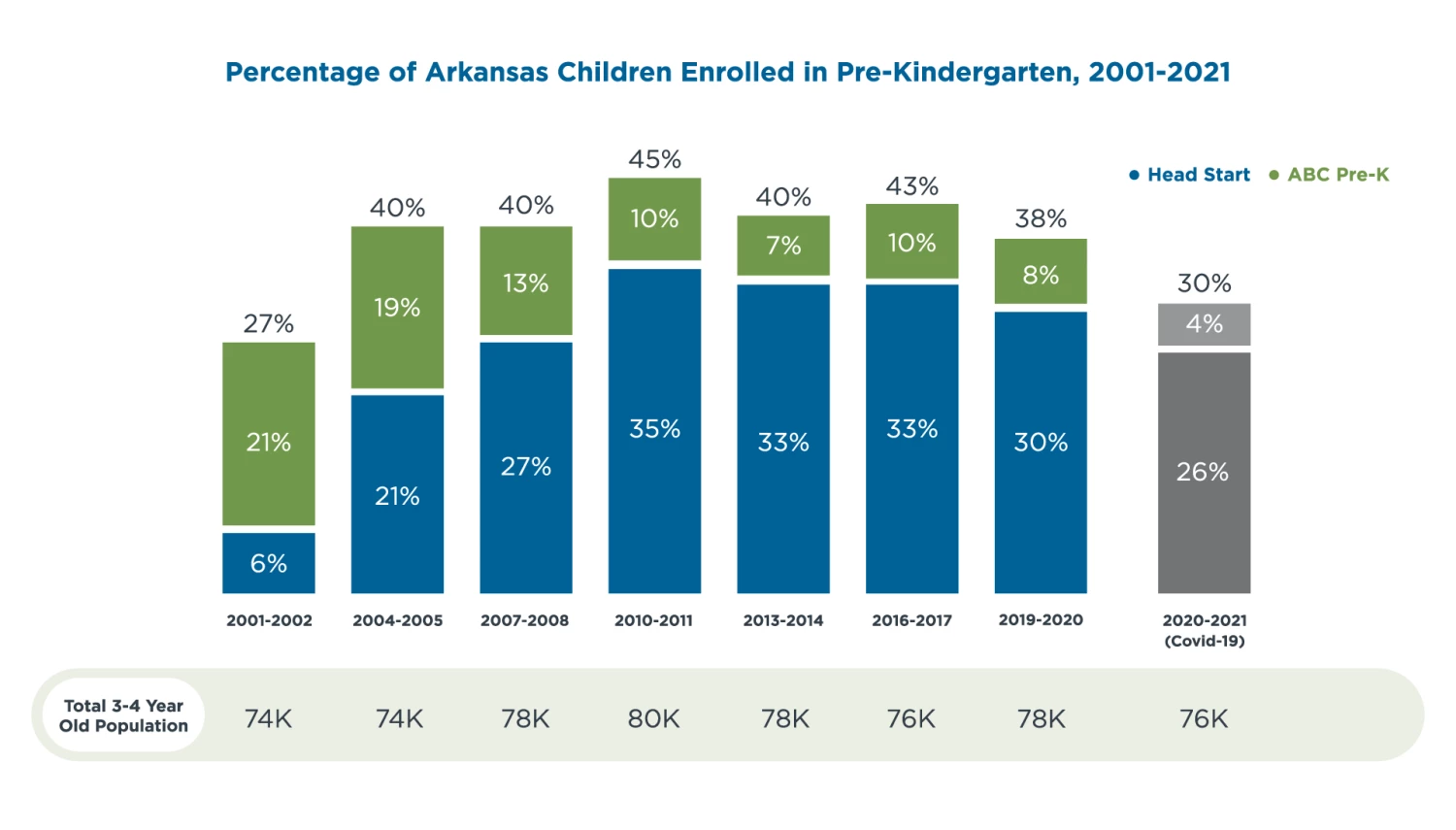Recommendation
Expand access to high-quality, early childhood education across the state.
Context and Arkansas Progress
Pre-Kindergarten (pre-K) was a recommended priority in the 2015 report and remains a priority today. Participation in pre-K is regarded as one of the most effective early supports a state can provide to children. Multiple studies find positive long-term impacts of pre-K on student emotional and academic well-being.
One key challenge for pre-K in Arkansas is expanding access so more students can benefit from existing high-quality programs. Overall, the demand for pre-K in the state is high, but eligibility and logistical barriers to access prevent many from enrolling. This results in a gap between the capacity of existing centers and the number of children who can access them.
A challenge to growing early childhood programming, both within Arkansas and nationally, is the availability of highly qualified teacher talent. Salary discrepancy, coupled with a steep decline (10%) in childcare employment nationally, increases the difficulty pre-K programs in Arkansas face in attracting and retaining talent.
Opportunities for Arkansas
As a first step before expanding capacity, the state could consider opportunities to increase student access to existing pre-K centers. Some of the challenges that inhibit student access to pre-K include:
- Eligibility : Only the lowest-income students have access to the program, which leaves many who may not be able to afford private pre-K, but don’t qualify for ABC, without an early childhood education option.
- Cost: Enhanced subsidies for families have historically proven to increase enrollment in Arkansas ABC programs.
- Transportation: Less than 30% of pre-K centers statewide provide transportation.
- Hours: 30% of centers close during the summer, limiting access for many families.
